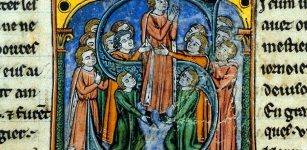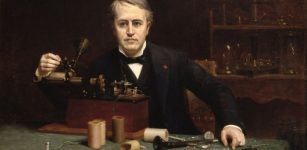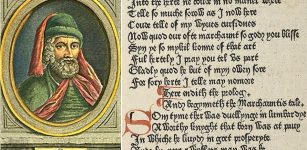On This Day In History: Gordon Willard Allport American Psychologist And Developer Of Personality Trait Theory Was Born – On Nov 11, 1897
MessageToEagle.com – On November 11, 1897, American psychologist Gordon Willard Allport was born. He is today famous for developing the personality trait theory according to which traits are essentially unique to each individual.
Born in in Montezuma, Indiana, Gordon Willard Allport was the youngest of four brothers. His father was a doctor and he came from a hard working family. As a young boy, Allport was shy and did not spend much time with friends. He lived a rather isolated life. When he was 22, he traveled to Vienna. He met with the great Sigmund Freud, Austrian neurologist and the founder of psychoanalysis.
“So many tangles in life are ultimately hopeless that we have no appropriate sword other than laughter.” ~ Gordon Willard Allport
This was the beginning of Allport’s career in psychology. In 1922, Allport received his Ph.D. in Psychology from Harvard University.
Allport studies led him to believe that the uniqueness of each personality was one of the most important things to understand. Part of this uniqueness is due to the several parts of our personality. These thought led to the development of the trait theory. Allport and other modern supporters of the trait theory presumed that individuals differ in their traits due to genetic differences.
A trait is identifying characteristic, habit, or trend.
Gordon Willard Allport organized traits into a hierarchy of three levels: cardinal traits, central traits, and secondary traits.

At the top of the pyramid are the cardinal traits that are usually composed of multiple traits. Cardinal traits are collectively known as the individual’s master control. They are considered to be an individual’s ruling passions.
Next are central traits which are the basic foundation of our personality. The shape our behavior and these characteristics vary in every person. Central traits can be loyalty, kindness, agreeableness, friendliness, sneakiness, wildness, or grouchiness.
“Self-love, it is obvious, remains always positive and active in our natures.”
On the lowest level are secondary traits that explain why a person may at times exhibit behaviors that seem incongruent with their usual behaviors. For example, a friendly person gets angry when people try to tickle him; another is not an anxious person but always feels nervous speaking publicly.
Allport and other trait theory psychologists suggested that reflexes, habits, drives or needs, beliefs, our particular view of our environment, goals or intentions, values, attitudes, and traits as being the kind of factors determine what we do. This means that personality is a very complex subject.
Allport did not share Sigmund Freud’s opinion that we are controlled by innate or external factors because humans have the ability to make conscious choices about how to behave.
Unlike Sigmund Freud, he did not see us as slavishly controlled by innate or external factors because humans have the ability to make conscious choices about how to behave.
MessageToEagle.com
Expand for references









